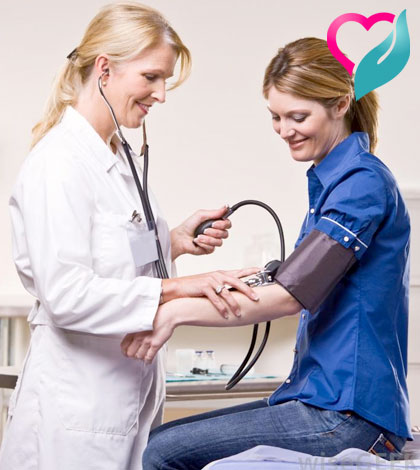6. Seek help for snoring
It’s time to heed your partner’s complaints and get that snoring checked out. Loud, incessant snores are one of the main symptoms of obstructive sleep apnea (OSA). University of Alabama researchers found that many sleep apnea sufferers also had high levels of aldosterone, a hormone that can boost blood pressure.
[wp_ad_camp_1]
In fact, it’s estimated that half of all people with sleep apnea have high blood pressure. If you have sleep apnea, you may experience many brief yet potentially life-threatening interruptions in your breathing while you sleep. In addition to loud snoring, excessive daytime tiredness and early morning headaches are also good clues. If you have high blood pressure, ask your doctor if OSA could be behind it; treating sleep apnea may lower aldosterone levels and improve BP.
7. Jump for soy
A study from Circulation: Journal of the American Heart Association found for the first time that replacing some of the refined carbohydrates in your diet with foods high in soy or milk protein, such as low-fat dairy, can bring down systolic blood pressure if you have hypertension or prehypertension.
[wp_ad_camp_4]
8. Cut back on caffeine
The role caffeine plays in blood pressure is still debatable. Drinking caffeinated beverages can temporarily cause a spike in your blood pressure, but it’s unclear whether the effect is temporary or long lasting.
To see if caffeine raises your blood pressure, check your pressure within 30 minutes of drinking a cup of coffee or another caffeinated beverage you regularly drink. If your blood pressure increases by five to 10 points, you may be sensitive to the blood pressure raising effects of caffeine.
9. Reduce your stress
Stress or anxiety can temporarily increase blood pressure. Take some time to think about what causes you to feel stressed, such as work, family, finances or illness. Once you know what’s causing your stress, consider how you can eliminate or reduce stress.
If you can’t eliminate all of your stressors, you can at least cope with them in a healthier way. Take breaks for deep-breathing exercises. Get a massage or take up yoga or meditation. If self-help doesn’t work, seek out a professional for counseling.
[wp_ad_camp_2]
10. Monitor your blood pressure at home and make regular doctor’s appointments
If you have high blood pressure, you may need to monitor your blood pressure at home. Learning to self-monitor your blood pressure with an upper arm monitor can help motivate you. Talk to your doctor about home monitoring before getting started.
Regular visits to your doctor are also likely to become a part of your normal routine. These visits will help keep tabs on your blood pressure.
- Have a primary care doctor. People who don’t have a primary care doctor find it harder to control their blood pressure. If you can, visit the same health care facility or professional for all of your health care needs.
- Visit your doctor regularly. If your blood pressure isn’t well controlled, or if you have other medical problems, you might need to visit your doctor every month to review your treatment and make adjustments. If your blood pressure is under control, you might need to visit your doctor only every six to 12 months, depending on other conditions you might have.
11. Get support from family and friends
Supportive family and friends can help improve your health. They may encourage you to take care of yourself, drive you to the doctor’s office or embark on an exercise program with you to keep your blood pressure low. Talk to your family and friends about the dangers of high blood pressure.
If you find you need support beyond your family and friends, consider joining a support group. This may put you in touch with people who can give you an emotional or morale boost and who can offer practical tips to cope with your condition.
12. Avoid tobacco products and secondhand smoke
On top of all the other dangers of smoking, the nicotine in tobacco products can raise your blood pressure by 10 mm Hg or more for up to an hour after you smoke. Smoking throughout the day means your blood pressure may remain constantly high.
You should also avoid secondhand smoke. Inhaling smoke from others also puts you at risk of health problems, including high blood pressure and heart disease.
13. Reduce sodium in your diet
Even a small reduction in the sodium in your diet can reduce blood pressure by 2 to 8 mm Hg. The recommendations for reducing sodium are:
- Limit sodium to 2,300 milligrams (mg) a day or less.
- A lower sodium level — 1,500 mg a day or less — is appropriate for people 51 years of age or older, and individuals of any age who are African-American or who have high blood pressure, diabetes or chronic kidney disease.
To decrease sodium in your diet, consider these tips:
- Track how much salt is in your diet. Keep a food diary to estimate how much sodium is in what you eat and drink each day.
- Read food labels. If possible, choose low-sodium alternatives of the foods and beverages you normally buy.
- Eat fewer processed foods. Potato chips, frozen dinners, bacon and processed lunch meats are high in sodium.
- Don’t add salt. Just 1 level teaspoon of salt has 2,300 mg of sodium. Use herbs or spices, rather than salt, to add more flavor to your foods.
- Ease into it. If you don’t feel like you can drastically reduce the sodium in your diet suddenly, cut back gradually. Your palate will adjust over time.
[wp_ad_camp_3]




























